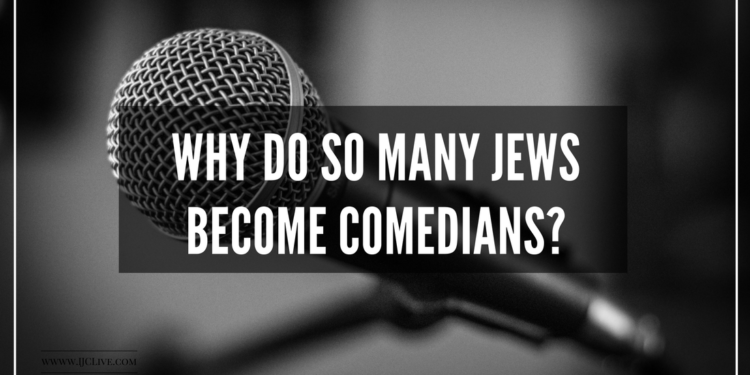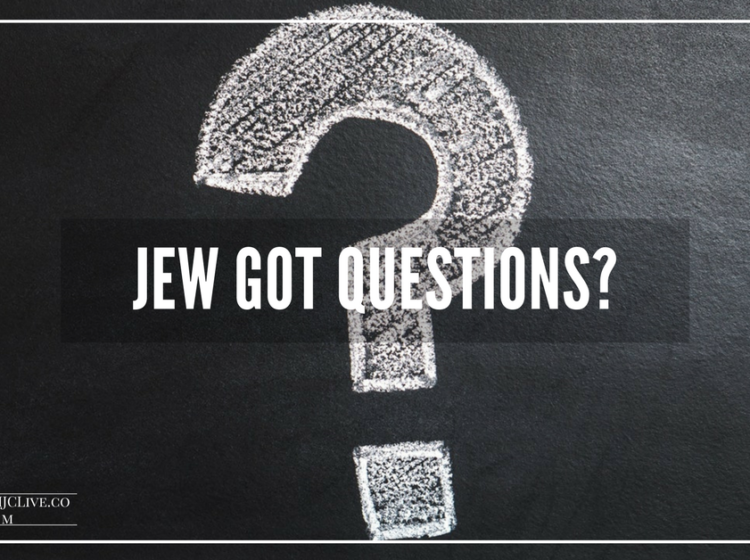The world recently mourned the passing of arguably one of the greatest comedians of modern times, Robin Williams. Some in the media gave him an interesting title, ‘honorary Jew’. Why did he have to be a Jew? Why couldn’t we have left him as a brilliantly comedic non Jew? Well if you look back at most of the great comedians from the pervious generation, and this one, they are all predominantly Jewish. This is a group they obviously wanted him to be part of. Here is a short list of some Jewish comedians, with their ‘real’ names:
- Jack Benny (Benjamin Kubelsky),
- Mel Brooks (Melvyn Kaminsky),
- Milton Berle (Mendel Berlinger),
- Gene Wilder (Jerome Silberman),
- Jackie Mason (Yaakov Moshe Maza),
- Buddy Hackett (Leonard Hacker),
- Jerry Lewis (Joseph Levitch),
- Danny Kaye (Daniel Kaminski),
- Victor Borge (Borge Rosenbaum),
- Rodney Dangerfield (Jacob Cohen),
- Joan Rivers (Joan Molinsky).
- Tony Curtis (Bernie Schwartz)
I still have a habit after watching a funny movie or show to play ‘spot the Jew’ as the credits roll.
Growing up I had a passion for jokes and stand up comedy and even used to perform once in a while. The fact that I became a rabbi instead of a stand up comedian tells you a little of how good I was. The one question that always fascinated me was, why are Jews so funny? Is it a coincidence that nearly all the great entertainers of recent memory were of Jewish stock, or is something deeper going on?
This question was answered for me a number of years ago while I was reading one of my favorite commentators on the Torah, Rabbi Samson Raphael Hirsch. He makes a short but remarkable statement which completely changed the way I looked at comedy, and particularly the possible reason why so many Jewish people are involved in it. What I discovered is that the relationship between Jew and comedy is far from new, and actually goes right back to our birth as a people.
When the Jewish people left Egypt they were pursued by Pharaoh and the Egyptian army who regretted letting them leave in the first place. Several days after leaving Egypt the Jewish people arrived at the Red Sea. It was then that the Egyptian army caught up and surrounded them. Behind them were the Egyptians, in front of them was the sea and to the sides was a hostile desert with wild animals. They were trapped.
The Torah describes the scene quite vividly, “And the Egyptians pursued after them, all the horses and chariots of Pharaoh, and his horsemen, and his army, and overtook them encamping by the sea…and when Pharaoh drew close, the children of Israel lifted up their eyes, and, behold, the Egyptians were marching after them; and they were very afraid; and the children of Israel cried out to God.” (Exodus 14:10-11)
You could have expected them to cry out to God, or to complain to Moses, but what they said after that was very unexpected, “And they said to Moses: Were there no graves in Egypt, that you brought us to die here in the wilderness?”
What kind of statement is that? Of course there were graves in Egypt. Their own parents, grandparents and everyone else for that matter had died and been buried there.
Rabbi Hirsch gives us a short but fascinating explanation of this verse. He says, “This sharp and ironic statement was made at a time of the deepest anxiety and despair. This marks the sense of wit that is a characteristic trait of the clearheaded Jewish people”. He’s telling us a remarkable thing, the Jewish people made a joke. They assumed that this was the end of the road. All bets were off. Hundreds of years of Jewish history were about to come to a very gruesome and pitiful end. Instead of crying, they made a sarcastic comment. “Oh I see Moses, there wasn’t a grave in Egypt that you had to shlep us to die here instead!”
Comedy and humor have a purpose. The Jewish people have gone through thousands of years of Jewish history, and along the way we have seen and been part of some of the worst atrocities the world has known. We have survived beatings, torture, forced conversions, exiles, pogroms and holocausts. We needed something to help us survive those hardships. One of the abilities that God encoded into our spiritual DNA from our earliest beginnings as a people, was the ability to laugh. Comedy is one of many survival tools that was granted to the Jewish people. And God knows, we’ve needed it.
I have the honor of leading trips for young Jewish professionals to Poland every year. A few years ago a survivor of Birkenau, Leo Zisman of blessed memory, and his wife Myrna, accompanied us for the tour. Leo was a true character, and gave us a detailed explanation of exactly what living during the horrors of the holocaust was really like. He had a terrific and mischievous sense of humor. I once asked him how he had the mental stamina to survive such an atrocious experience. He replied that what many people used to do to escape the terrible reality they were faced with on a daily basis, was to tell each other jokes and funny stories from the shtetl. Those moments of laughter lifted them out of their misery for a few moments every day.
I even saw a book for sale in the gift shop at the Majdanek concentration (yes even the camps have gift shops) that cataloged many of the stories, plays and jokes that were told by many of the inmates in the camps called ‘Laughter in Hell’.
Much medical research has been done which has shown the incredible benefits a good laugh can have on your mind and body. Among other things laughter can lower blood pressure, reduce stress hormone levels, improve cardiac health and trigger the release of endorphins, the body’s natural pain killers.
The talmud tells us a story about the great sage Rabbi Beroka who one day met Elijah the prophet in the market place. Upon seeing him Rabbi Beroka asked him the following question, “Who in the market is worthy of achieving the next world”. Elijah pointed at two men, and said they were ideal candidates. Rabbi Beroka approached the two men and asked them “What do you do for a living?” They replied, “We are clowns, and we tell jokes for a living. When we see people around us who are a bit down hearted we cheer them up with a joke, and a few funny words”. Using the power of humor to lift people’s spirits when they are down and depressed, according to Elijah the prophet, is worthy enough of assuring you a place in heaven.
Laughter can even help you focus on better times in the future. Rabbi Akiva was one of the greatest sages from the talmud, and witnessed first hand the destruction of the second temple in Jerusalem. The talmud tells us that he was standing with Rabbi Gamliel, Elazar ben Ezariah and Yehoshua next to the temple after its destruction, and they could hear the Romans celebrating their victory. They all started crying, except for Rabbi Akiva who started laughing.
They him asked, “Why are you laughing?” He answered, “Why are you crying?” They said, “Because the Jewish temple has been destroyed” He said, “I am laughing because if those people who go against God celebrate, how much more will we laugh in the future days of the third temple”. Laughter has the ability to transport you from a place of despair and anguish, to a future time of solace and salvation.
I’ll conclude with the profound words of comedian Jimmy Durante (he of the humongous nose), “It dawned on me then that as long as I could laugh, I was safe from the world. I have learned since that laughter keeps me safe from myself, too. All of us who have schnozzles, are ridiculous in one way or another, if not in our faces, then in our characters, minds or habits. When we admit our schnozzles, instead of defending them, we begin to laugh, and the world laughs with us.”
Challenging times face us as individuals and as a people. Sometimes the best medicine is to just laugh.



